Schedule: Pre-Conference Programming
Pre-Conference Programming for the 2025 LEARN Conference
Serious about making a difference and growing your career?
We have just the thing.
Our Pre-Conference Programming provides you with the space and time to roll up your sleeves, dig a little deeper and LEARN alongside an intimate cohort of your peers.
Pre-Conference forums are available as an add-on on Page 2 of the registration process. Questions? Email us!
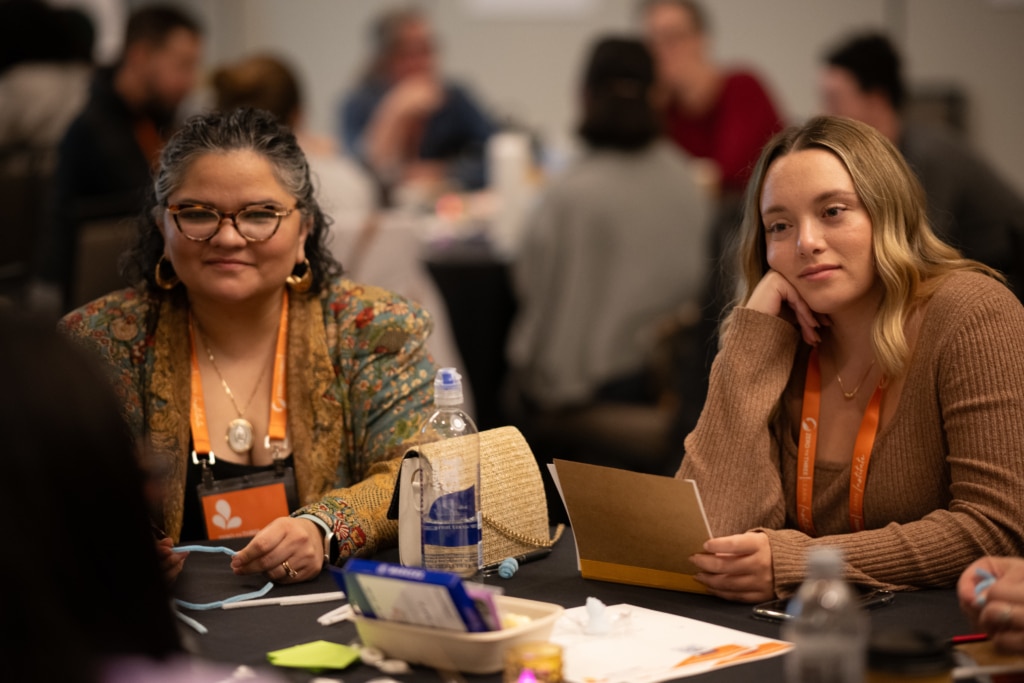
Explore options to enrich your journey with tailored sessions designed for early childhood professionals seeking advanced development opportunities and impactful strategies to immediately apply to your practice.
Higher Education Faculty Institutes
Designed for higher education faculty and staff involved in either early development and mental health or early development and education instruction, curricula, course, and/or program design, Higher Education Faculty Institutes build your capacity and networks.
Higher Education Institutes include a networking lunch and 1 CEU. Participants gain individual permission to use exclusive ZERO TO THREE content and resources in their higher education instruction, curricula, course, and/or program design (Price: $450)
Faculty Institute: DC:0–5™
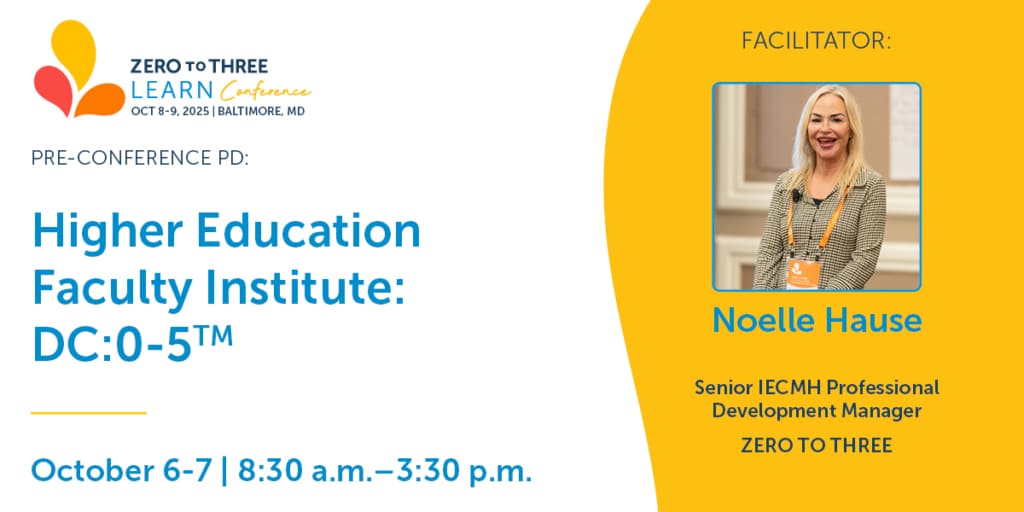
Dive into the only diagnostic classification system focused on mental health for infants and young children, birth to 5 years old.
DC:0–5™: Diagnostic Classification of Mental Health and Developmental Disorders of Infancy and Early Childhood is a multiaxial, culturally grounded, relationship-based, and developmentally appropriate classification system (or nosology) to guide the diagnostic process with infants, young children, and their families across diverse settings. This session equips you to confidently introduce the fundamentals of the DC:0-5 nosology in your teaching. You’ll gain practical resources, strategies, and hands-on practice to help your students understand the approach to diagnosis in the Infant and Early Childhood Mental Health (IECMH) field. Learn how to introduce this empirically derived and clinically meaningful diagnostic system in a way that highlights its importance and application. Set your students up for success by deepening their understanding of DC:0–5 and its role in transforming IECMH practice.
Faculty Institute: Critical Competencies
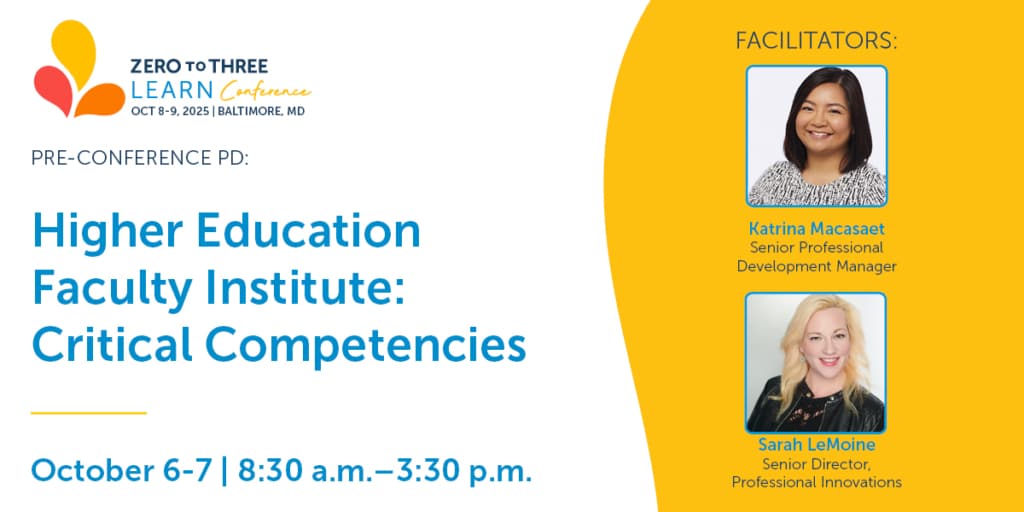
Transform teacher-child interactions with the essential skills needed to optimize social-emotional, cognitive, and language and literacy development—the ZERO TO THREE Critical Competencies for Infant-Toddler Educators™ (Critical Competencies).
The Critical Competencies address the knowledge-to-practice cycle gaps that promote high-quality care and education for infants and toddlers in group settings (center-based and family child care homes). The Critical Competencies also include considerations for dual-/multi-language learners and populations facing multiple risk factors. These specialized competencies build on and are aligned with other professional criteria for the early childhood education field (e.g., NAEYC, CDA, and more), are cross-walked with state core knowledge and competency areas, align with observation tools (e.g., ITERS and CLASS), and the Head Start Early Learning Outcomes Framework.
Join this session to explore and gain the Critical Competencies’ robust resources ready for your immediate use in planning and teaching higher education courses and programs of study—from course frameworks, to syllabi, presentations, activities, multi-media files, knowledge assessments, and textbooks available in English and Spanish.
Pre-Conference Forums
Explore these two opportunities to enhance leadership skills and build collaborative relationships while learning from some of the best and brightest leaders in the early childhood field.
Pre-Conference Forums include a networking lunch and .5 CEU. (Price: $245)
Forum: Leadership for Wellness
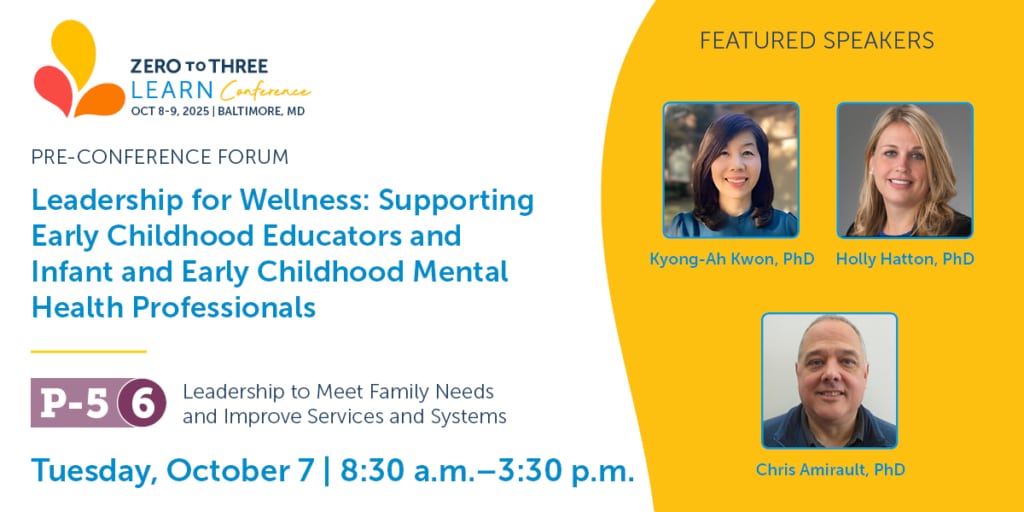
Join us for this engaging forum to explore the latest research and effective methods for supporting well-being.
Early Childhood (EC) educators and Infant and Early Childhood Mental Health (IECMH) professionals play a vital role in supporting young children, their families, and their communities. However, they often face high workloads, limited resources, and workplace challenges, which have worsened post-pandemic. These stressors impact staff well-being, retention, and program success.
While these challenges can feel overwhelming, proven strategies exist to address them and create a healthy workplace culture.
Join this interactive forum to explore research-backed strategies that:
- Foster collaboration
- Support children and address their challenging behaviors and;
- Implement innovative, evidence-based wellness models
Forum: In This Together
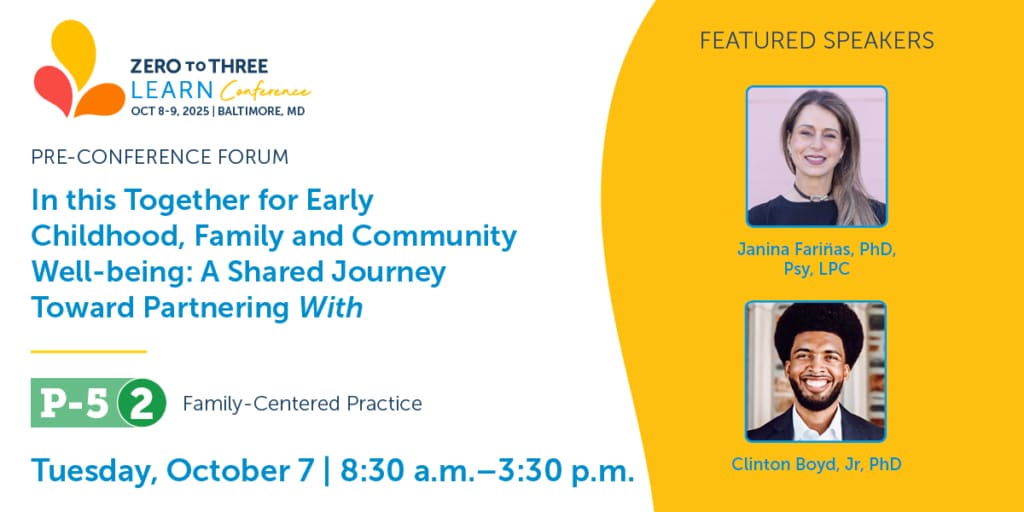
Gain valuable insights into building enduring, collaborative relationships that strengthen the well-being of children, families, communities, and yourself.
This dynamic forum unites early childhood professionals—administrators, supervisors, direct service providers, policymakers, and more—to explore innovative strategies for fostering deep, meaningful, and equitable partnerships with families and communities. Emphasizing their inherent wisdom, commitment, and pathways to healing, this session features interactive activities, opportunities to connect with expert faculty and peers, and plenty of fun!
Join us to exchange ideas, discover innovative practices, and develop plans to fortify these vital connections with your families and communities.
Exclusively for HealthySteps Network Attendees
Advancing Early Relational Health in Primary Care Pediatrics
Tuesday, October 7, 2025
LEARN MORE
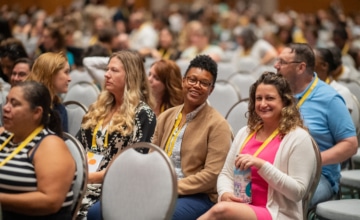
LEARN: Early Childhood Professional Development


